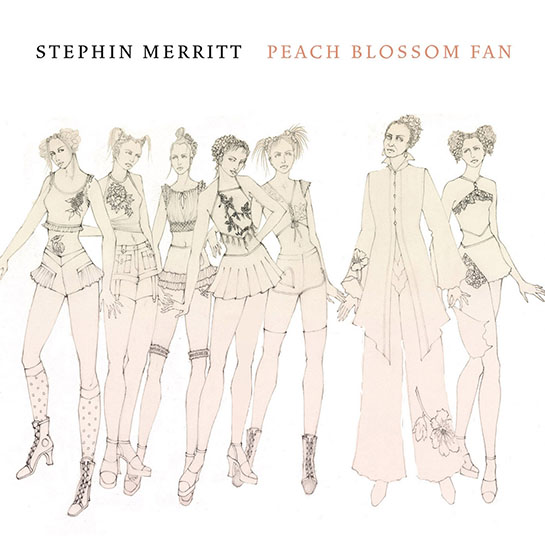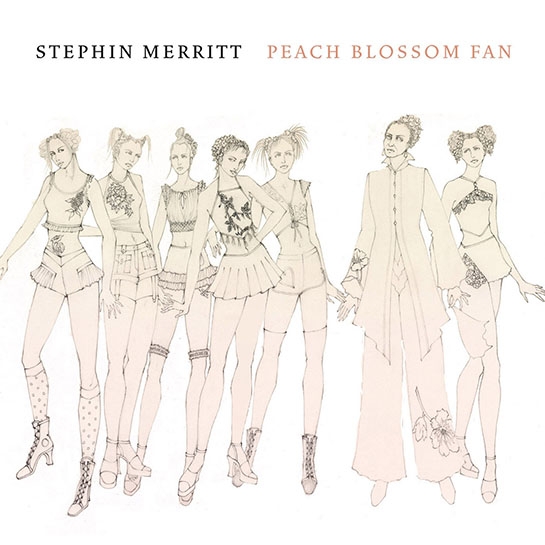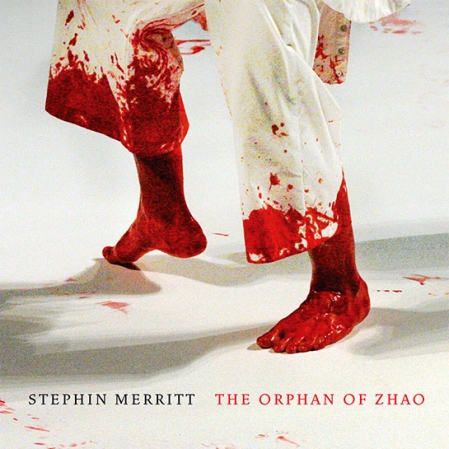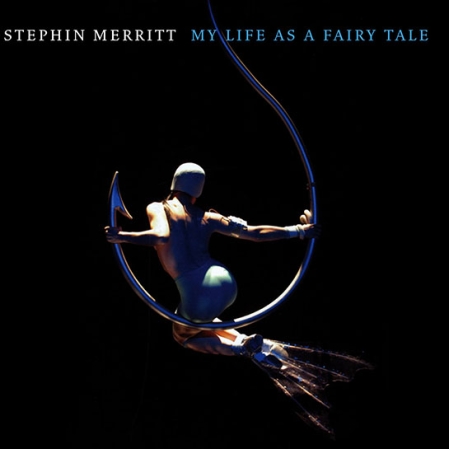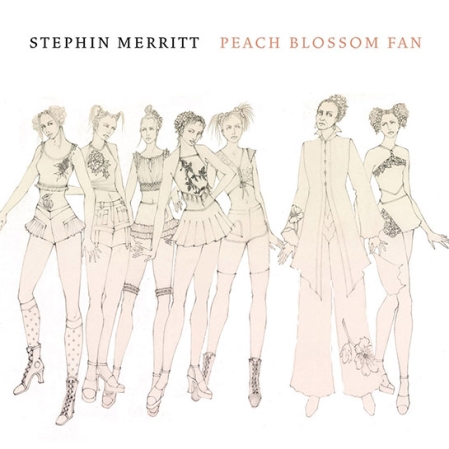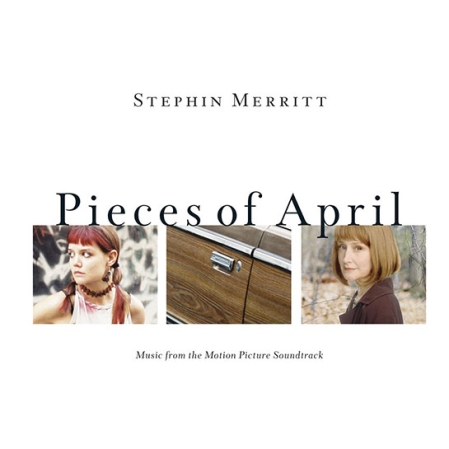Stephin Merritt wrote music and lyrics to this 1699 play, set in the last days of the Ming Dynasty, for a 2004 production by LA's REDCAT, directed by Chen Shi-Zheng. The Los Angeles Times said, “Merritt’s facile and often funny rhymes and breezy Broadway melodic style have an easy, natural flow that Chen then makes complex through his use of florid operatic movements.”
In the last days of the Ming Dynasty, the Manchus are overrunning the kingdom of Jin. Everyone is forced to choose sides while appearing loyal to the power of the moment. “At Madam Plum’s,” a brothel, the courtesans entertain a duplicitous poet Yang Long You (“I Am Yang Long You”) with a “Fan Dance Cha-Cha.” Yang introduces a promising new poet with “This is Hou Fang You.” Madam Plum recites “The Menu.” The newest courtesan is introduced (“This Is Shiang-Jun”). Hou falls in love with her at once (“Shall We Sing a Duet?”), but lacks funds. Enter an evil poet-politician (“I Am Yuen Da Cheng”), who offers an emerald ring (“Sounds Expensive”) to sponsor the young lovers. Shiang-Jun rejects his generosity and the lovers leave together anyway, reprising “Shall We Sing a Duet?” The Governor of Fung Yong province (“I Am Ma Shih Ying”) meets with Yuen to discuss art and politics—specifically, which Emperor to install and which poets to suppress. Madam Plum encourages Shiang-Jun to run away with Hou (“And He Would Say ...”), but he has gone into exile.
Ma, Yang, and Yuen go skiing to celebrate and survey “The View From Above.” At the new palace, their new young puppet Emperor enters to the national anthem “Hail! Son of Heaven,” and laments the dismal state of dramatic entertainment (“It’s Hard to Be the Emperor”). Shiang-Jun attempts suicide (“One Little Flower More or Less”) rather than become the Emperor’s concubine. The courtesans whip out fifteen ukuleles and sing “Ukulele Me!” Still bored, the Emperor sings a bawdy number in the worst taste, “Behold the Lowly Centipede.” Yang encourages the repatriated Hou to join the new power coalition, offering him Shiang-Jun (“And She Would Say ...”).
The political situation deteriorates further and the last general, Shih Ko Fa (“This Is Shih Ko Fa”), fails to protect the Emperor. He commits suicide (“Sorry, Wrong Show”), ending all hope of Jin self rule and ushering in the Manchu Dynasty. As the city burns, Hou sings “The Liberation of Nanjing.” By chance he meets Shiang-Jun. He and Yang each offer her an avenue of escape (“Come Away with Me Now”). Hou’s sympathy with the new barbarian rulers disgusts her (“Barbarians”), and they part forever.
Peach Blossom Fan was written in 1699, by Kung Shang-Ren, who lived through the fall of the Ming Dynasty described in the play. This production of Peach Blossom Fan was originally commissioned by the Center for New Theater at CalArts and received its world premiere at the Roy and Edna Disney CalArts Theater (REDCAT) in Los Angeles on April 9, 2004. It was REDCAT’s inaugural theatrical presentation. Directed by Chen Shi-Zheng, book by Edward Mast, music and lyrics by Stephin Merritt.
MUSICIANS
Cast:
Fran Bennett: Madam Plum
Jon David Casey: Yang Long You
Jon DeRosa: Hou Fang Yu
David Patrick Kelly: Yuen Da-Cheng
Dudley Klute: Shih Ko-Fa
Mary Lou Rosato: Ma Shih-Ying
Shirley Simms: Shiang-Jun
Matthew Steiner: Emperor
Musicians:
Zachary Behrens, marimba
Lillian Chen, yangqin
Ivan Johnson, bass
Daniel Savell, steel drums, bass drum
Ernest Adzentoivich, bass on “Sorry, Wrong Show”
Chorus: Chris Dionaldo, Brittany Dunn, Molly Frieri, Claudia Gonson, Brian Hall, Kelly Hrehovcik, Michael Liscio, David Murgittroyd, Jenna Pasqua, Richard Pepenella, Rob Scherzer, Rachel Witmer, Stephen Yesenosky
Chorus and Ukulele on “Ukulele Me”: LD Beghtol, Jon DeRosa, Claudia Gonson, Anne Harris, Larry Krone, Benjamin Lerman, Sydney Maresca, Kendall Jane Meade, Carla Murray, Jon Natchez
Musical Director: Kimberly Grigsby
Choral Director: Michael Yesenosky
79944
